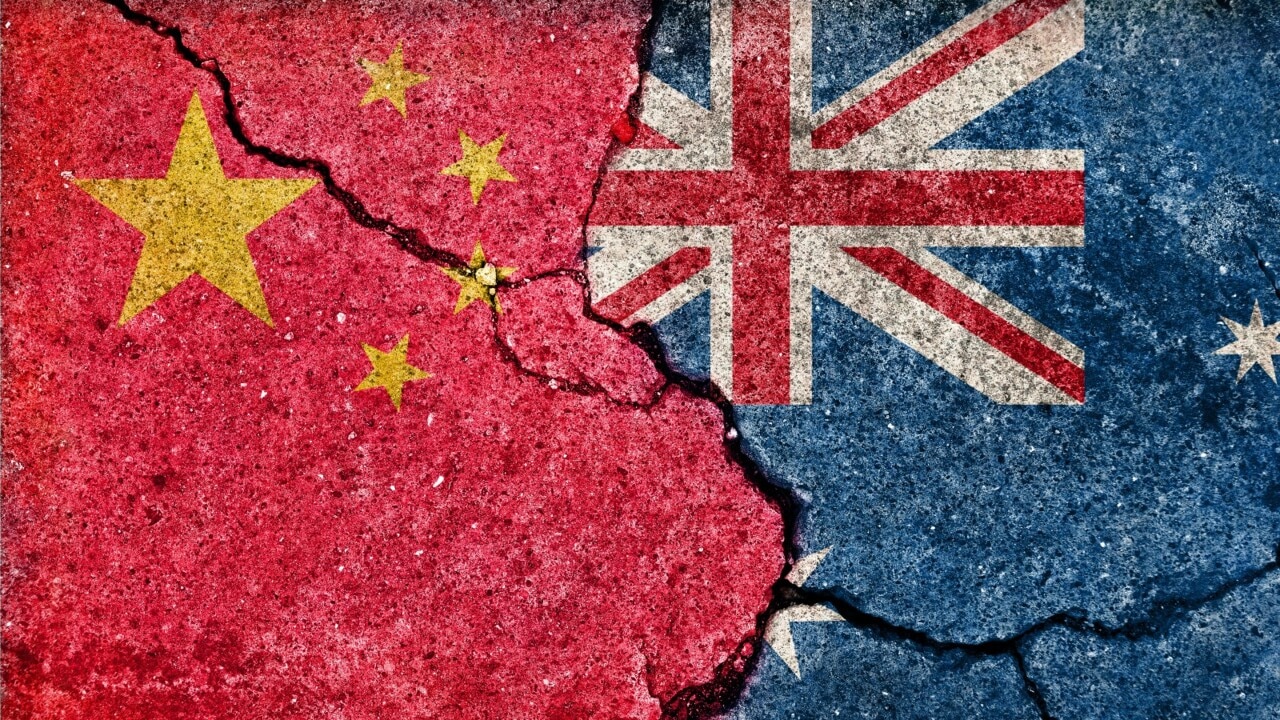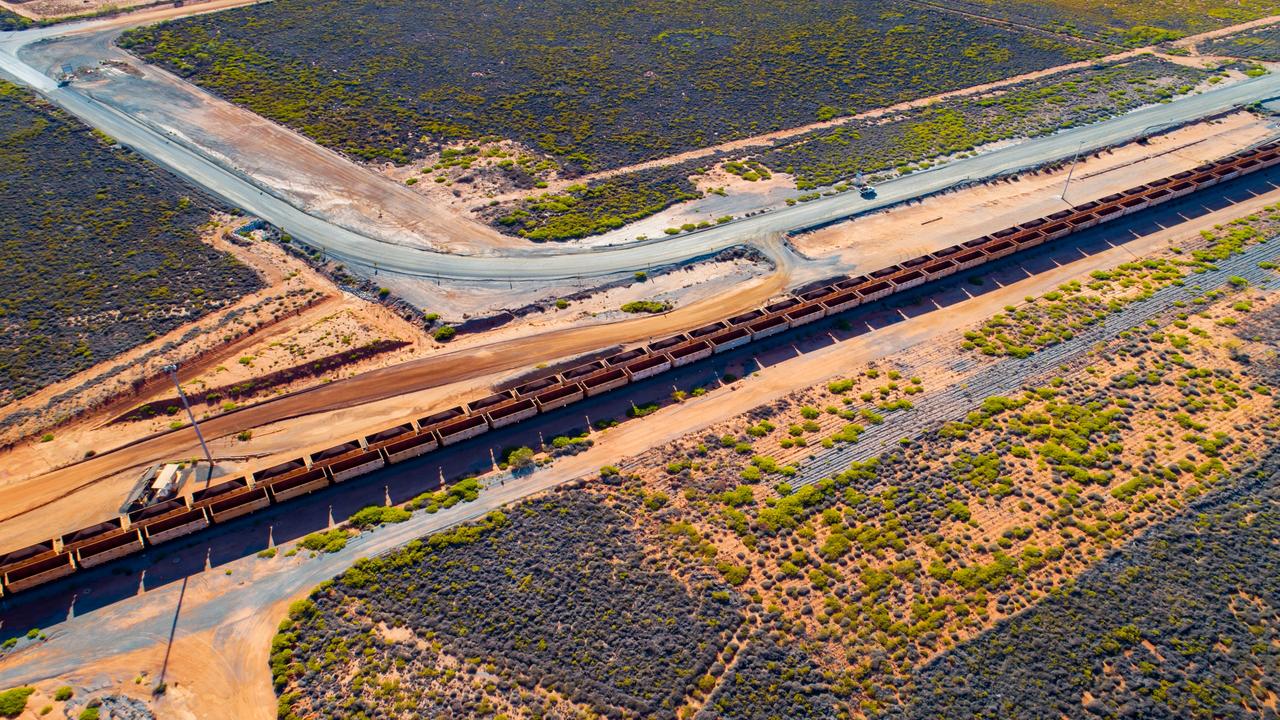China’s apparent backflip over Australia could be disastrous
China appears to be making a huge backflip which in theory looks amazing for Australia, but we need to learn from our past.

ANALYSIS
The news is full of new concessions from China to Australia. China appears to be reversing its shadow-ban on importing Aussie coal that wiped $1 billion off Australia’s balance sheet.
This backflip is a revealing outrun of events given the past five years of China’s attempt to strangle Australia’s economy.
The Chinese assault took a range of forms from trade blockades to economic coercion, bullying diplomacy, and daily blandishments of the Australian people by Communist Party propaganda outlets.
All of it succeeded only in steeling the Australian people against Chinese interference and economic integration. We should all be proud of our national strength of character and, for once, our federal governments, which steadfastly refused to capitulate.
Marvellously, we’ve emerged from the conflict far less dependent upon China than we went in (also partly down to the Ukraine War).
Now, a cowed China is reopening to Australian trade. This is well and good as far as it goes, lifting trade at the margin. But, hopefully, we have learned our lesson. Largesse from Communist China is not free. It comes with strings attached that can easily be tightened into a national garotte if we are not careful.
As China reopens to Australia, it is also reopening from Covid-zero. So, we need also to consider what that will do to the progress we have made in reducing our China dependence.
That reopening is most likely to be driven by Chinese consumption, which has been suppressed by lockdowns, not investment that has been driven by fiscal stimulus.

The return of Chinese people to Australia
For Australia, the primary benefit of this return of consumption will be in the return of tourists and students. This is fine as far as it goes.
But the latter is not all good for the economy. Universities have previously allowed greed to overwhelm their pedagogical standards with a whole range of problems from the structure of teaching to cheating and curtailment of free speech on campus.
Hopefully, the universities are better prepared to manage problems associated with a large cohort of Chinese students but there is little evidence of it. This is economically damaging to productivity in the long run.
Commodities prices
In the short term, the bigger issue presented by the Chinese reopening to Australia is what it will do to commodity demand. This will be mixed but, on balance, negative.
The big three exports of LNG, the two coals, and iron ore are all likely to come under pressure.

LNG prices will be supported by a Chinese reopening. However, this is happening as the global economy slows, hurting prices. As well, the northern hemisphere has enjoyed its warmest winter in years, leaving it well-stocked with gas.
This means the rebuild of inventories throughout 2023 will be benign so LNG prices are likely to keep dropping.
In turn, this will sooner rather than later crash the thermal coal price which is still at improbable highs. Coal competes directly with gas as a fuel for electricity generation.
It may be that China starts to import more Australian coal, but the reopening of Chinese land borders will bring in more Russian and Mongolian coal, along with new railways. It will also mean shipping route distortions brought about by China’s bans fall away, making it cheaper.
The issue of land access for coal is even more significant for metallurgic, used in steel. Mongolian flows were cut hard during Covid and will rebound sharply with open borders. Prices have already come down a lot but will do so more yet.
The Chinese property market
That brings us to iron ore. Covid proved to be a boon for iron ore in the early phase of Covid before the Chinese real estate crash reduced the price from $230 to $70.
Lately, it has rebounded above $110 on hopes of a property rebound with the reopening.
There is likely to be some rebound in sales for new builds but nothing like the cycles of the past given the structural nature of declining demographics and the damage to sentiment around debt. Even a rebound peaking at 50 per cent above current sales would be small fry for iron ore demand.
Meanwhile, huge infrastructure stimulus will come off as an offset as consumption booms. Global demand for steel will be under pressure too owing to the wider recession. These factors are likely to be a zero-sum on balance for iron ore.
Finally, if thermal coal does fall, and power prices do too, then China’s enormous fleet of steel recyclers will resume operations and the demand for pig iron will fall and so will prices before very long.
As is often the case for Australia’s peculiar mix of energy and bulk commodities, bad times are often good times for prices as they benefit from supply chain disruptions and fiscal spending more than do other resources.
Conversely, good times can bring more supply and less building as GDP composition shifts to more normal patterns. The Chinese reopening is shaping up as an exaggerated version of this pattern.
All up, the dual Chinse reopening will add to Australian GDP growth but will likely subtract from national income as the terms of trade fall back towards pre-Covid levels.
In the longer term, we can only hope that policymakers have learned their lesson and will pursue lawmaking that hedges Australia against the next inevitable change in mood by Chinese President Xi Jinping.
David Llewellyn-Smith is Chief Strategist at the MB Fund and MB Super. David is the founding publisher and editor of MacroBusiness and was the founding publisher and global economy editor of The Diplomat, the Asia Pacific’s leading geopolitics and economics portal. He is the co-author of The Great Crash of 2008 with Ross Garnaut and was the editor of the second Garnaut Climate Change Review.





